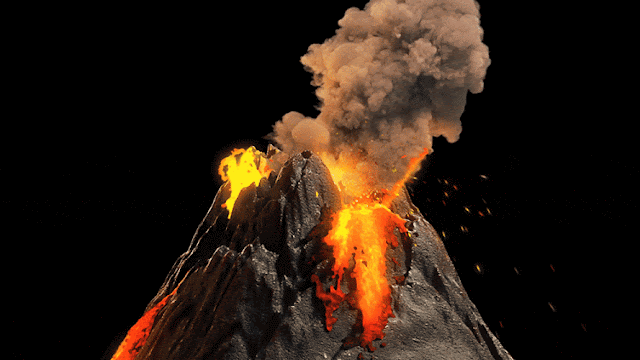A solar-terrestrial effect strongly influences volcanism
The presentation focuses on a strong influence of solar wind on seismic and volcanic activity. The activity rates correlate with the solar wind speed and with the geomagnetic indices which reflect the solar induced disturbances of the Earth's magnetic field, Dst and Kp. The data bases of the Global Volcanism Program (Washington), of ISGI (Paris), the USGS, the Osservatorio Vesuviano INGV (Naples) and the OMNIweb (NASA) were accessed. In an early paper (Duma & Vilardo, 1997) it was shown already that seismic activity in the area Mt.Vesuvius varies parallel to the three solar cycles no. 20, 21, 22 (maxima 1969, 1980, 1989). The data set comprises thousands of weak earthquakes M ≤ 3.4. Such a solar effect appears not only in the long term but distinctly in the diurnal range, too, in dependence of the 24 hour cycle of the ionospheric Sq current system. The results of the present study reveal that the seismic activity at Mt.Vesuvius still reacted to this solar impact in the recent period 1999 - 2013. In additon, numerous studies in the past two decades show that this geodynamic influence acts not only on volcanic regions but on many of the main earthquake zones on the globe, causing fluctuations in seismic activity even for events M>6 (e.g. Duma & Ruzhin, 2003; Lipovics, 2005; Duma, 2010). Statistic analyses of time series of seismic strain release and Kp over decades indicated an average significance level of 97% for 9 main earthquake zones. Examples are given which illustrate the effect in seismic regions in N-Italy (fromUmbria to Emilia-Romagna) and S-Italy (Calabria to l'Abruzzo). As to the activity of volcanic eruptions, there is a strong indication that the same solar effect enhances the frequency of eruptions in periods of high solar flare activity of the solar cycles. This is shown not only for Mt. Etna but also for other main volcanoes on the globe, the Mt. St. Helens (USA), Mt. Unzen (Japan), Pinatubo (Philippines) and El Chichon (Mexico). Since the effect can be verified in so many regions, it seems to be a very general and powerful effect with far reaching mechanic implications for seismic as well as volcanic activity. Source

Comments
Post a Comment